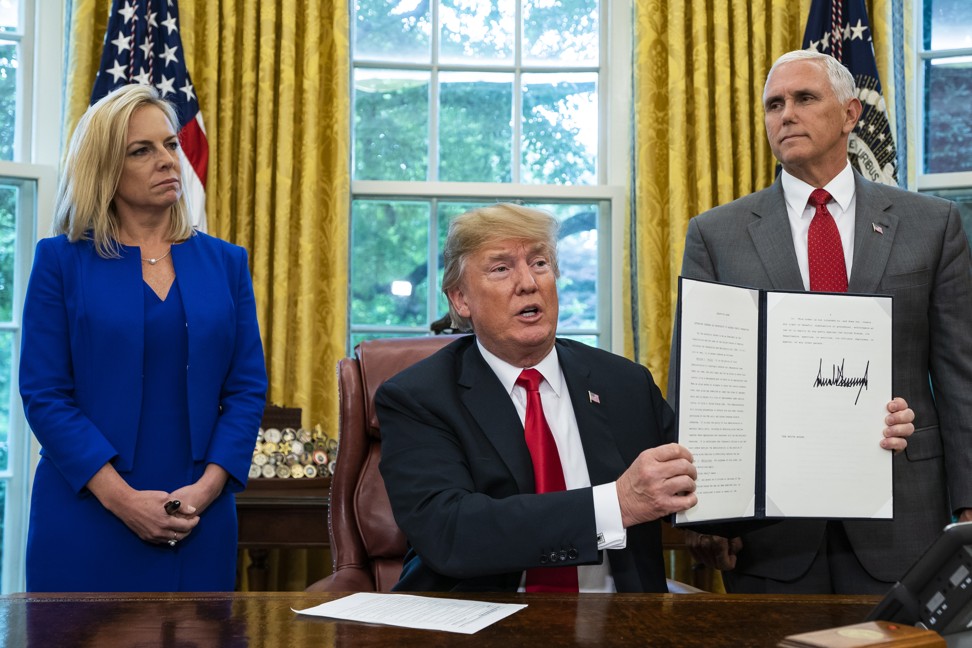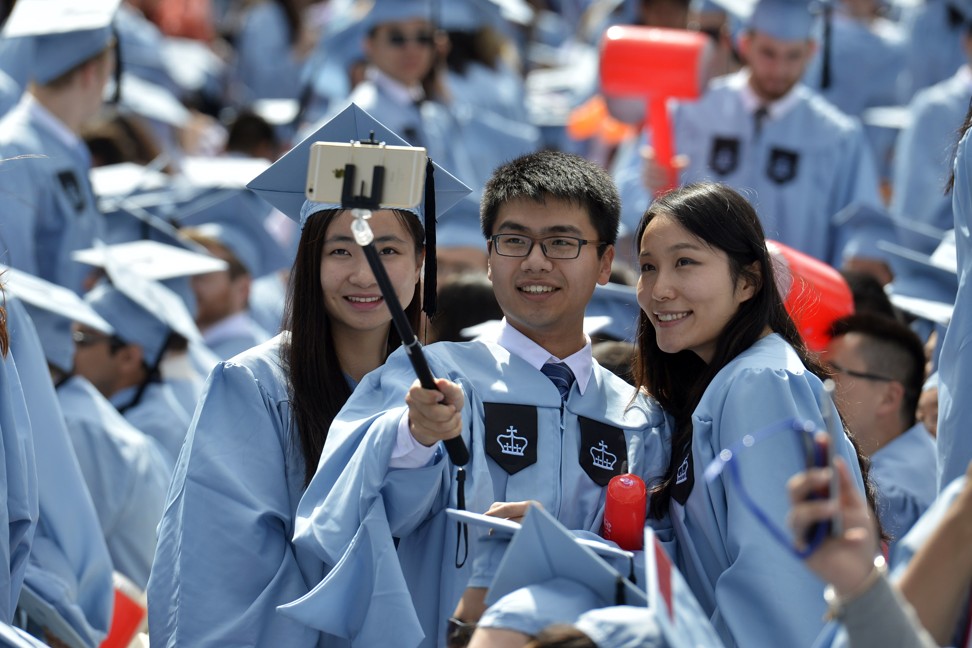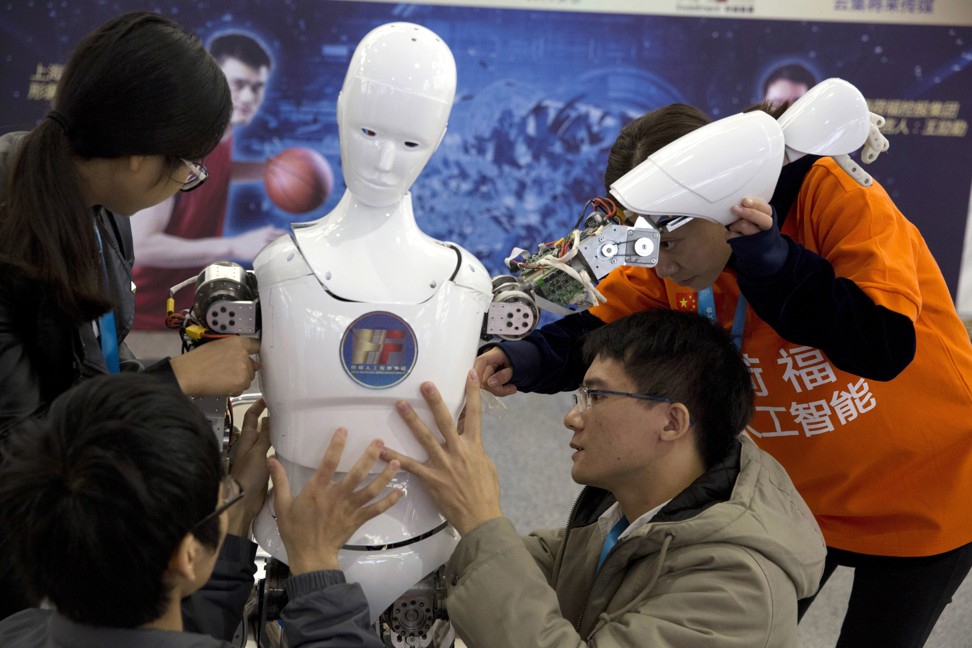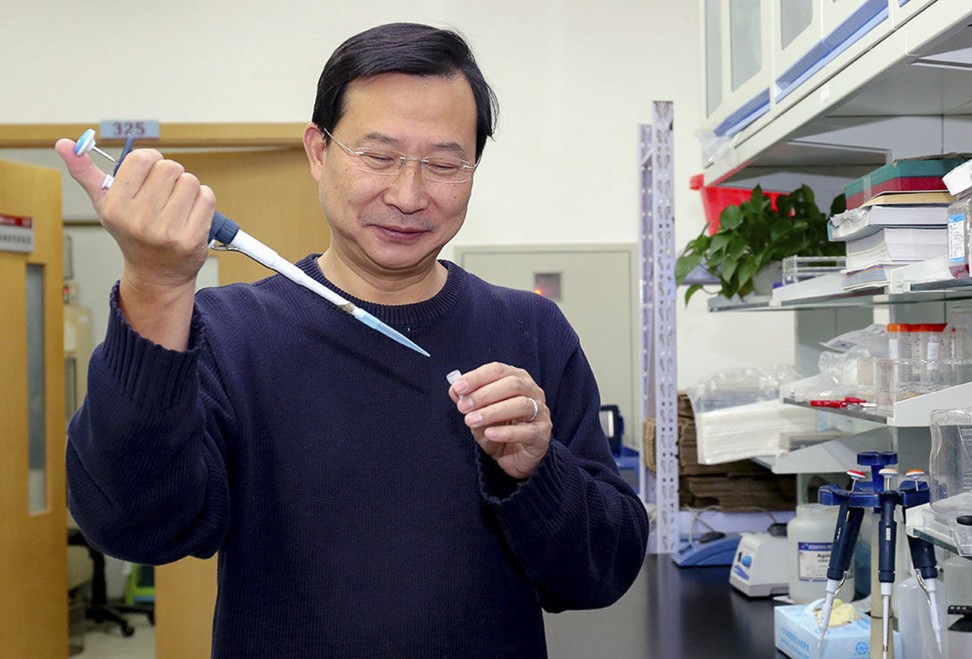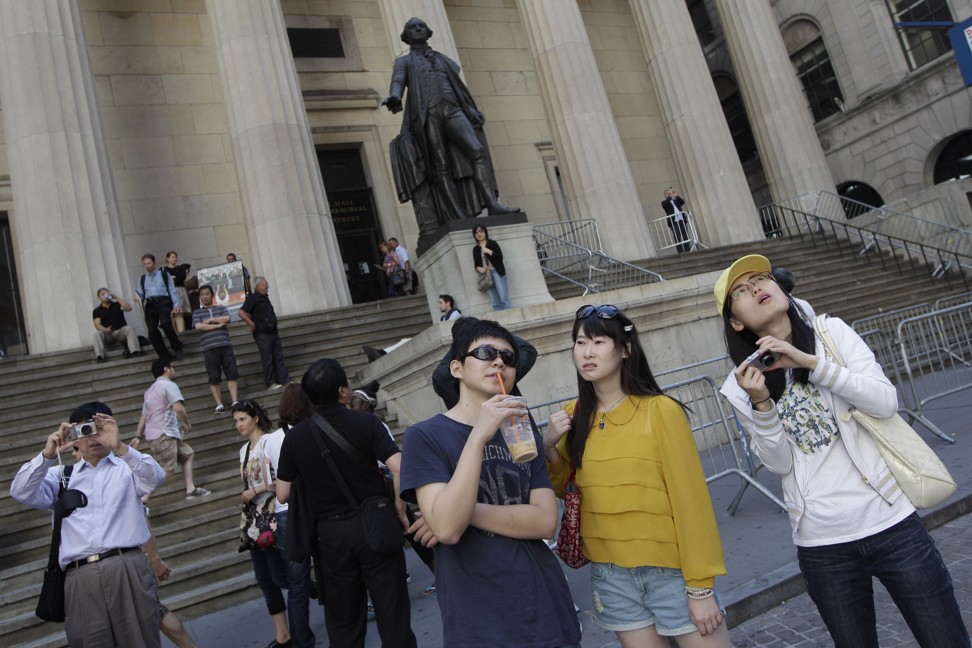
Why US visas are a passport to uncertainty for China’s hi-tech researchers
The Chinese scientific community faces higher barriers to entry to the United States as trade tensions rise
When Sonia Sun returned to China in late May to renew her US visa for her postdoctoral studies in industrial engineering, she found herself on edge again.
Last year, the 29-year-old student at Purdue University in West Lafayette, Indiana, had to make the long journey to Guangzhou in southern China and wait about six weeks before getting her J-1, a non-immigrant visa issued by the United States to researchers, professors and exchange visitors.
During the half-hour interview with consulate staff members, Sun was grilled on her research interests and reason for studying in the US.
“When they realised my degree was in telecommunications, the interview suddenly ended and the staff said my application needed additional checks,” she said.
It was a sharp contrast to a year earlier when she had sailed through the application process in two weeks.
Sun was rattled by the uncertainty, a feeling that persisted for more than two months this year after she put in the paperwork and again explained in detail to consulate staff about her research. Her visa finally came through on August 1.
“I was not worried just about my visa. I had to check flights every day and calculate when would be the cheapest time to fly back if my visa was late, and what I should do if my application was rejected,” she said.
Sun is one of many Chinese postgraduate science students coming under tighter US visa scrutiny since trade tensions between Washington and Beijing began boiling over.
Since July 11, Chinese postgraduates studying in the US in fields such as robotics, aviation and hi-tech manufacturing have been limited to one-year visas, and Chinese citizens applying for a US visa have needed to secure additional US permission if they work in research or management for any institution that might arouse US suspicion, according to Associated Press.
The measures are reportedly meant to protect American intellectual property and affect a range of hi-tech research fields that are part of Beijing’s “Made in China 2025” programme to dominate the science and technology of the future.
Parts of the programme were targeted by the administration of US President Donald Trump in tariffs that came into effect on July 6.
Trump has been tightening US immigration policies since he took office in January 2017, citing security concerns.
In December, his administration imposed new requirements for the 38 countries taking part in the US Visa Waiver Programme, including the use of US counterterrorism data to screen travellers.
Media reports suggest that Trump’s tighter visa policies have already taken a toll on US business schools, which have seen a two-thirds decline in international student interest since the 2016 presidential election.
Part of the decline was caused by student concerns about Trump’s immigration policies – most notably, the ability to get an H-1B visa after graduating. These are often used by hi-tech companies in Silicon Valley for foreign graduates in speciality fields, including those with degrees in science, technology, engineering and maths (STEM).
“We will consider restrictions on foreign STEM students from designated countries to ensure that intellectual property is not transferred to our competitors, while acknowledging the importance of recruiting the most advanced technical workforce to the United States,” said a National Security Strategy report in February.
Of the more than 362,000 Chinese studying in the US last year, 152,000, or 42 per cent, were pursuing STEM-related majors, according to data from the US Department of Homeland Security’s web-based Student and Exchange Visitor Information System.
Before the implementation of the new policy, US State Department statistics showed a 17 per cent decline in 2017 in the number of F-1 visas issued to foreign students compared with 2016, and a drop of almost 39 per cent drop compared with 2015.
Of particular note is a 24 per cent decline in F-1 visas for Chinese students last year.
There are no official figures on just how many Chinese academics are being affected, but there is anecdotal evidence suggesting that more Chinese science and tech students and researchers are facing tighter scrutiny.
According to Texas-based website Checkee.info, more than 2,000 Chinese students reported having to submit to stricter US visa checks between January and June this year, up from fewer than 1,500 at the same time last year. Science and technology students were most likely to come in for extra attention, the website said.
Chinese academics also appear to be having a tougher time getting into the United States for conferences.
A professor surnamed Wang, in telecommunications at a top-tier university in central China, said one of his colleagues was denied a US visa, and another had to endure a long delay to go to a technology conference in Honolulu in April.
Both colleagues had visited the United States many times before, he said.
“Both had invitation letters from the US, but they either failed to get a visa in time or were rejected without an explanation,” he said, adding that he was able to attend because he already had a 10-year visa.
High-profile Peking University neuroscientist Rao Yi – who got US citizenship in the 1990s and renounced it in 2009 – has also been repeatedly rejected for a US visa since 2016, according to Science magazine.
The latest refusal on July 20 prevented him from accepting the US National Science Foundation’s invitation to attend a workshop on July 23 and 24 in Washington, the report said.
A spokeswoman for the US embassy in Beijing said consular officers could limit visas on a case-by-case basis.
Even summer school exchange students have been affected by the tightening of visa rules.
For the first time in 11 years, Chinese students from China’s Central University of Finance and Economics planning to join a four-week political and social research summer programme at the University of Michigan in Ann Arbor were denied visas.
“A number of visa applications from students hoping to participate in the programme were not approved by the US State Department,” said Rick Fitzgerald, spokesman for University of Michigan, adding the issue was not unique to his university.
The programme, the Inter-University Consortium for Political and Social Research, was set up in 1963 and provides training in data access, curation and methods of analysis for the social science research community.
The course has a data archive of more than 250,000 files of research in the social and behavioural sciences, with 21 specialised collections of data in education, ageing, terrorism and other fields.
Analysts say the restrictions and rejected visas will have longer-term implications.
David Lampton, director of China studies at Johns Hopkins School of Advanced International Studies, said the US appeared to be “more careful about to whom it gives visas”.
“This is one of the very unfortunate things going on in the US-China relations,” Lampton said, adding that the move would inhibit broader exchanges between people in the two countries.
Yuan Zheng, a US affairs expert from the Chinese Academy of Social Sciences, said the restrictions would only harm the United States in the long run.
“The move is in line with Trump’s protectionist stance and can only serve US short-term interests. The move would hinder bilateral exchanges and deepen China’s distrust towards the US, damaging Sino-US relations in the longer term,” Yuan said.
Once their visas were rejected, Chinese students were likely to divert their interests to study in the UK, Australia or Canada, said a Guangzhou-based overseas study agent surnamed Huang.
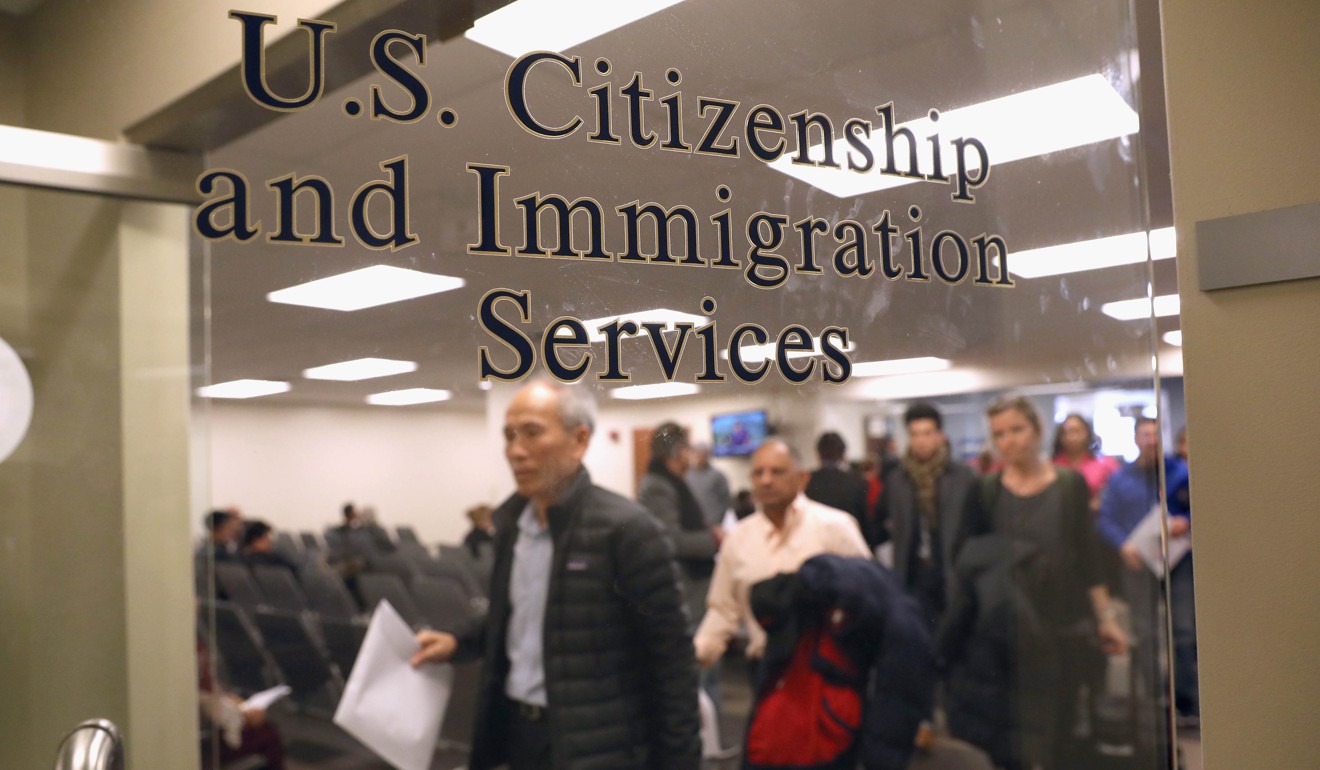
Li Shang, who completed his PhD at Columbia University and is now a senior inventive scientist at AT&T Labs, said he hoped to get a US green card granting permanent residency to dispel any deportation concerns.
“The Trump administration, in general, is not very friendly towards immigrants. I don’t know whether he would limit the immigration quota or set the immigration bar higher some day,” said Li, who holds a H-1B visa and has lived in the US for six years.
“I am working with my lawyer to apply for the US green card,” he said. “The whole process will take one to two years, and I hope I can get it before Trump changes policies that might affect me.”
Back in her hometown of Wuhan, Sonia Sun, holding her new visa, said she still counted herself lucky despite the long wait for it to come through.
“I can finally stop checking my visa application result every day and rest easy, knowing I could go back to continue my research,” she said.
Additional reporting by Nectar Gan


